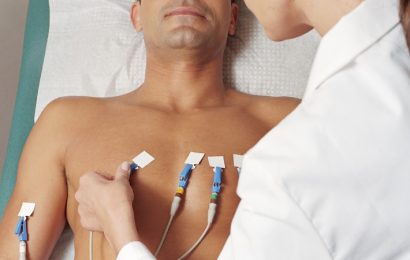NEW YORK (Reuters Health) – Receiving the quadrivalent human papillomavirus (HPV) vaccine is associated with a lower risk of recurrent respiratory papillomatosis (RRP) requiring surgery, according to results of a nonrandomized trial.
“Because no difference was detected in the frequency of recurrent postvaccination lesions in patients with new and recurrent disease, it appears that both groups showed equal benefit following HPV vaccination,” researchers write in JAMA Otolaryngology – Head & Neck Surgery. “These findings suggest that the earlier that patients with RRP receive HPV vaccine, the sooner they may show reduced burden of disease.”
For the phase-3b study, Dr. Ruth Tachezy of Charles University in Vestec, Czech Republic, and colleagues enrolled 50 adults with a median age of 41, 78% of whom were men. Thirteen were newly diagnosed, with no or only a single treatment in the previous three months, and 37 had recurrent disease (median duration, four years).
Of the 30 patients for whom a biopsy sample was available, all were HPV positive, 80% for HPV-6 and 13% for HPV-11.
Three doses of the quadrivalent HPV vaccine were given to each participant, within one month and within two months of study enrollment, and then within six months of the first dose.
In patients with recurrent disease, surgical interventions decreased significantly from a mean of 0.85 to 0.36 per year. There was no significant difference in postvaccination recurrences between patients with recurrent disease and those newly diagnosed.
Dr. Craig Derkay, professor of otolaryngology and pediatrics at Eastern Virginia Medical School, in Norfolk, Virginia, told Reuters Health by email that this study “represents the largest cohort of adults with RRP given the HPV vaccine in a clinical trial, adding to a growing body of evidence supporting its efficacy by supplementing the patient’s immune response to the virus.”
Dr. Derkay, who also chairs the Recurrent Respiratory Papillomatosis Task Force organized under the American Society of Pediatric Otolaryngology, added that the task force endorses routine use of the current 9-valent HPV vaccine “as an adjuvant to surgical therapy in children and adults with RRP,” even if these individuals are less than 9 years of age or over 45.
“There appears to be no downside to this approach,” said Dr. Derkay, who was not involved in the study. “Even if the RRP course is not altered, the patient will at least receive protection against infection from the other eight HPV sub-types that the patient is not infected with, and protection against oral, cervical, anal and penile cancers.”
Dr. Garth Ehrlich, professor of microbiology and immunology, and otolaryngology-head and neck surgery, at Drexel University College of Medicine, in Philadelphia, told Reuters Health in a phone interview that while RRP is quite rare, it seriously degrades quality of life and some patients eventually have dozens or even hundreds of surgeries.
He added that these surgeries are extremely dangerous and are usually performed by a fellowship-trained surgeon.
For these reasons, said Dr. Ehrlich, who also was not involved in the study, HPV vaccination is especially valuable, because it works even when a patient has pre-existing RRP.
Dr. Tachezy did not reply to a request for comment.
SOURCE: https://bit.ly/3NHhwpx JAMA Otolaryngology-Head & Neck Surgery, online June 2, 2022.
Source: Read Full Article


